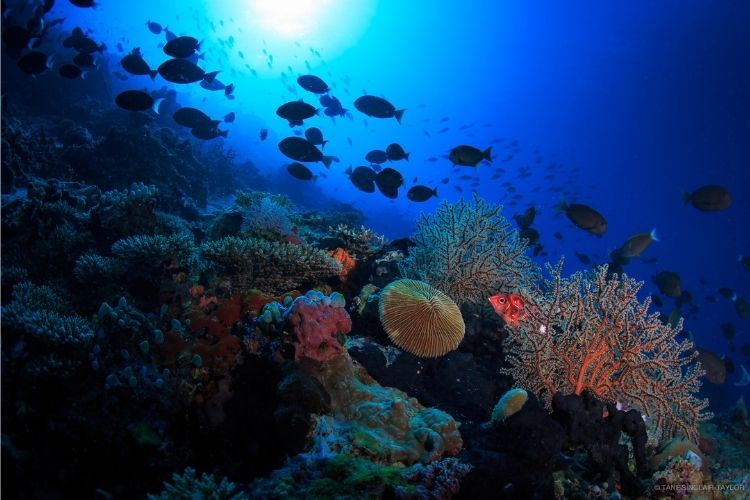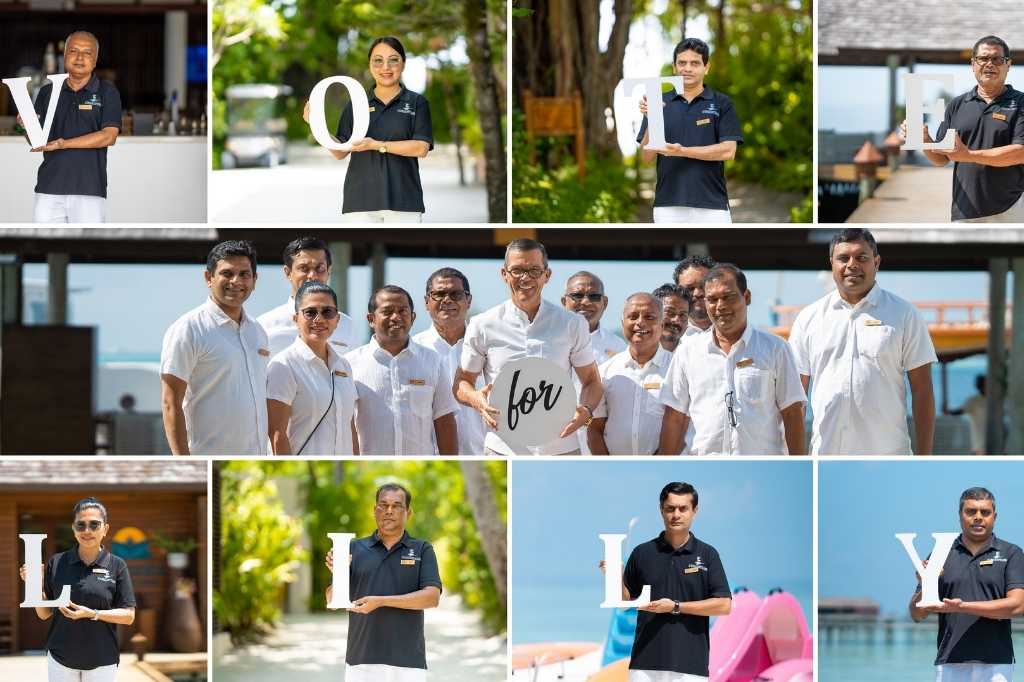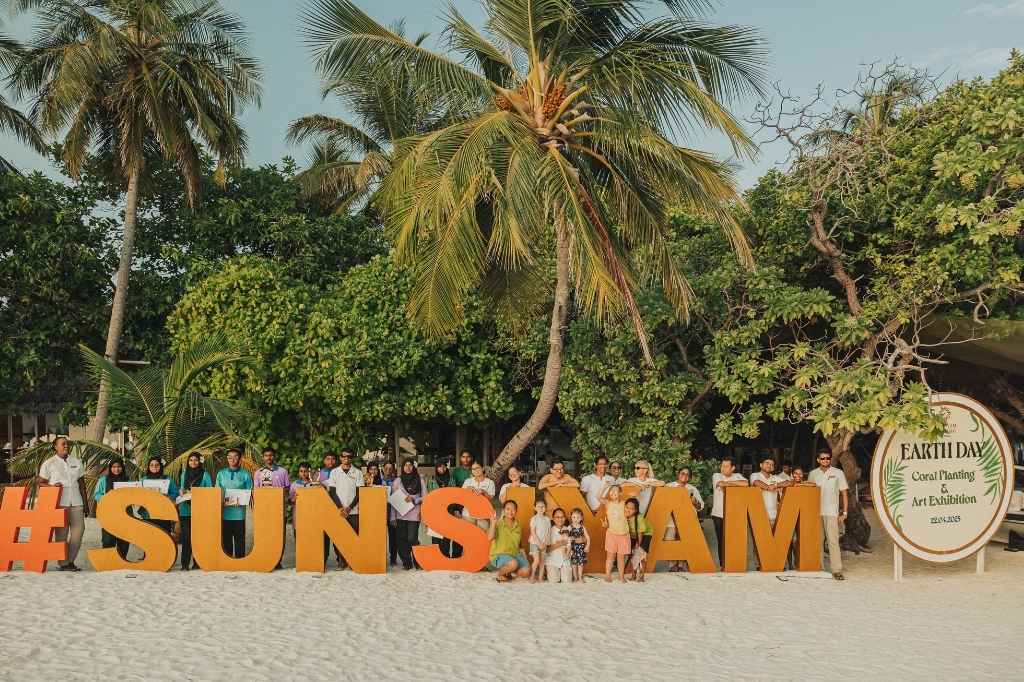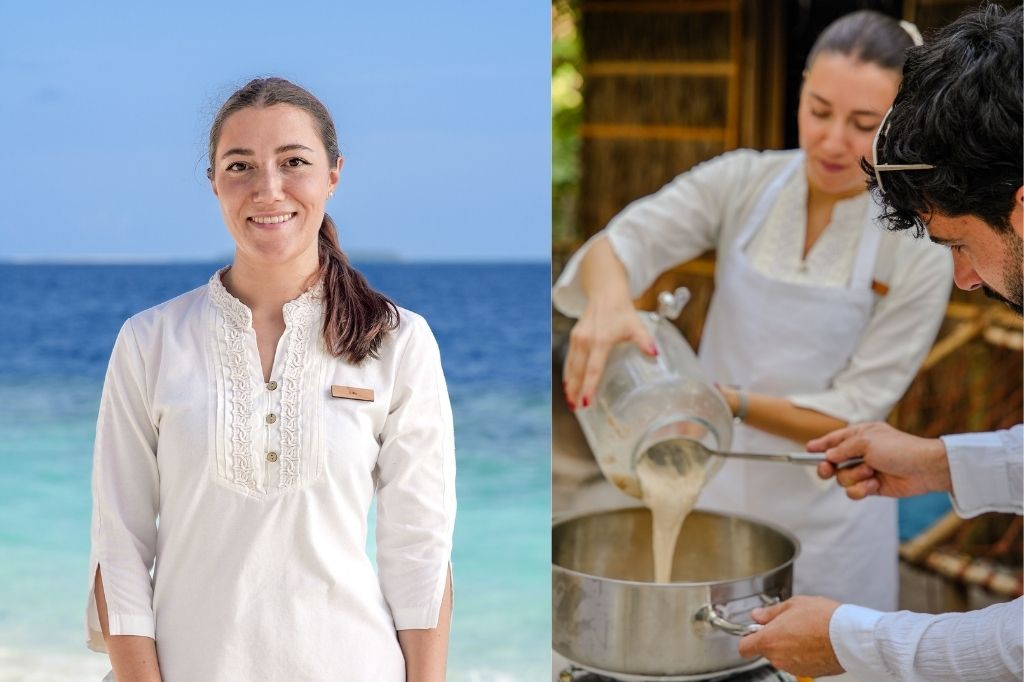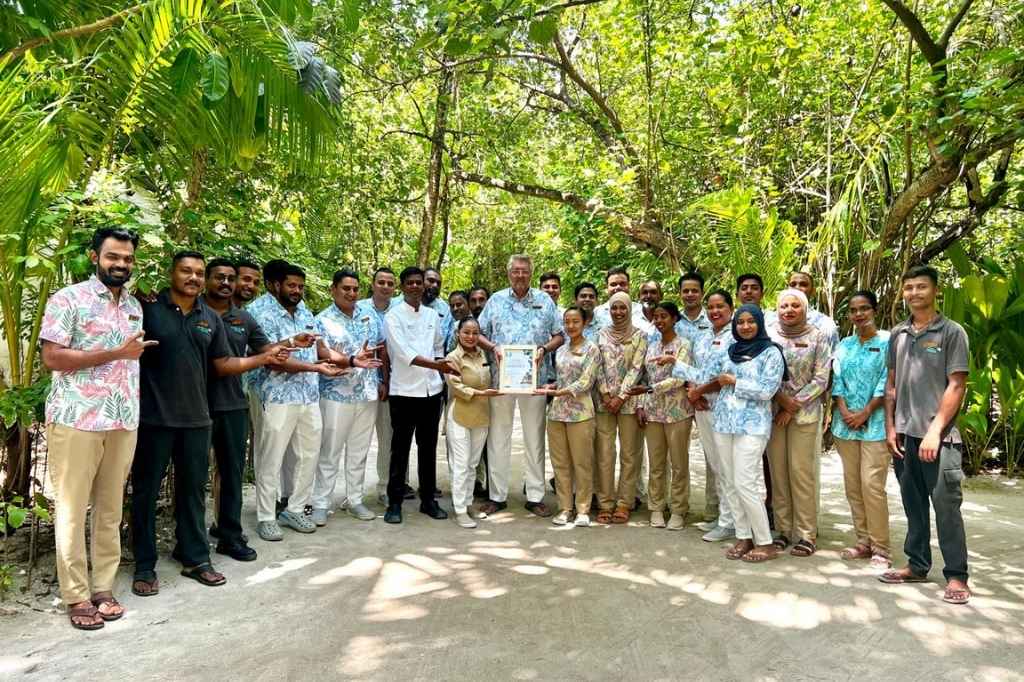The University of Milano-Bicocca and the government of the Republic of Maldives are now officially working together to develop a national protocol to coordinate the Maldivian coral restoration projects. This partnership will help achieve new important goals in the fields of sustainability and biodiversity.
During the ceremony that was live-streamed this morning from the Milan campus auditorium, the rector of the University, Giovanna Iannantuoni, and the Minister of Fisheries, Marine Resources and Agriculture of the Republic of Maldives, Zaha Waheed (via conference call) signed the agreement, officially setting in motion the project for the development of collaborative research.
The agreement that was signed today with the Maldives government represents a new step in the collaboration that has been going on for over 11 years with the goal of protecting the coral reef and reducing pollution in the seas. This partnership, which sees us engaged on crucial issues for the future of our planet, is a source of pride for the entire academic community.
Rector Giovanna Iannantuoni.
Coral reefs are among the most complex and biodiverse ecosystems on Earth, but they are threatened by the unsustainable management of the environment and its resources.
Thanks to the partnership stipulated today, all the techniques used for coral reef restoration will be analyzed, to identify the most effective ones to ensure the survival of these delicate organisms found in the Maldives, and to develop guidelines for their monitoring and application.
The agreement is part of a larger project. Since 2009 the University of Milano-Bicocca has been studying new solutions for the protection of corals and the marine environment. This is made possible thanks to the MaRHE research and higher education centre located on Magoodhoo island, in the Maldives, in collaboration with the government-affiliated Maldives Marine Research Institute, as well as with foreign universities and research centres.
These solutions include ecological coral restoration techniques based on the selection of “super corals” that are resistant to the effects of climate change, as well as the development of biocompatible and biodegradable mitigation methods for the healing of coral wounds, a solution that can extend the life of corals raised using restoration practices.
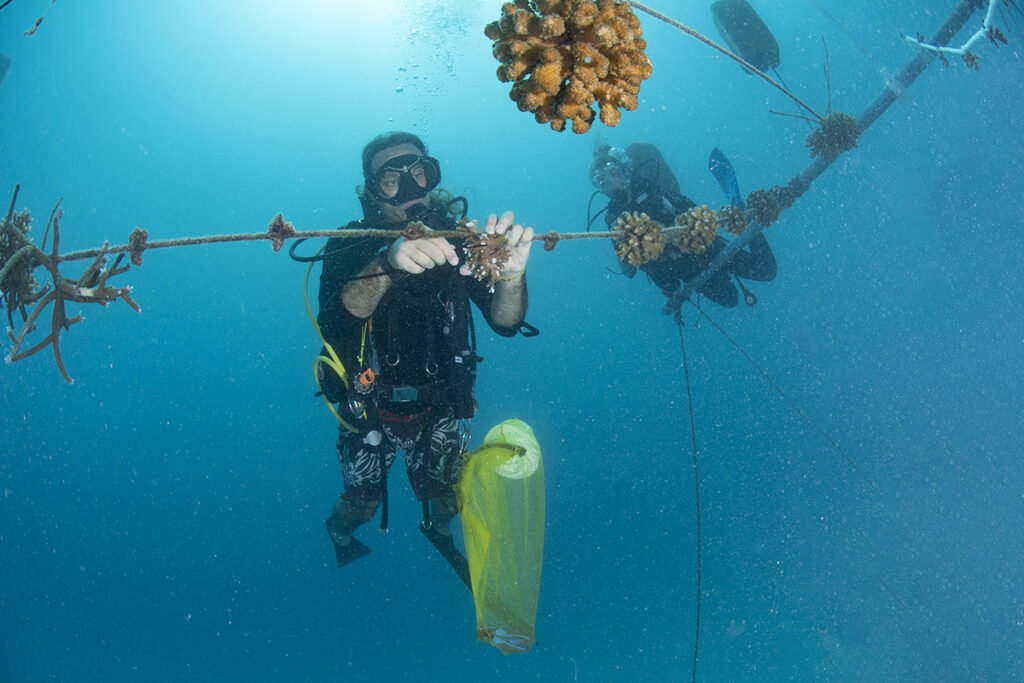
During the ceremony, the initiative entitled “CorallaMib” was also presented. It is a call for ideas open to university and high school students. The project will follow two strands: participants who choose the scientific one will be able to test themselves by proposing solutions that can reduce the impact of anthropogenic factors on coral reefs; those who opt for the artistic-literary one will be able to present a work dedicated to the sea and environmental protection.
When the world health situation allows it, the winners of the competition will be able to go to the MaRHE center in the Maldives to study closely, together with the researchers from Milano-Bicocca, the biodiversity of this archipelago, its coral reef and the factors that are threatening its survival.
Considering the MaRHE Center’s multidisciplinary approach, the agreement that was signed today provides for the involvement of several University Departments: the Department of Materials Science with the optimization and testing of new biopolymers in the marine environment, the Department of Biotechnology and Biosciences, with the analysis of physiological patterns in stressed marine animals, and the “R. Massa” Department of Human Sciences for Education for the “citizen science” elements applied to coral restoration, aimed at developing new channels of communication essential to raising awareness on the quality of the environment and on the importance of the oceans.
In order to develop new “coral restoration” techniques and to monitor coral health and reproduction in a controlled environment, the researchers of the Bicocca MaRHE center also collaborate with the Genoa Aquarium, with whom a partnership for joint research initiatives was signed in 2020.
Feature image by Università degli Studi di Milano-Bicocca


